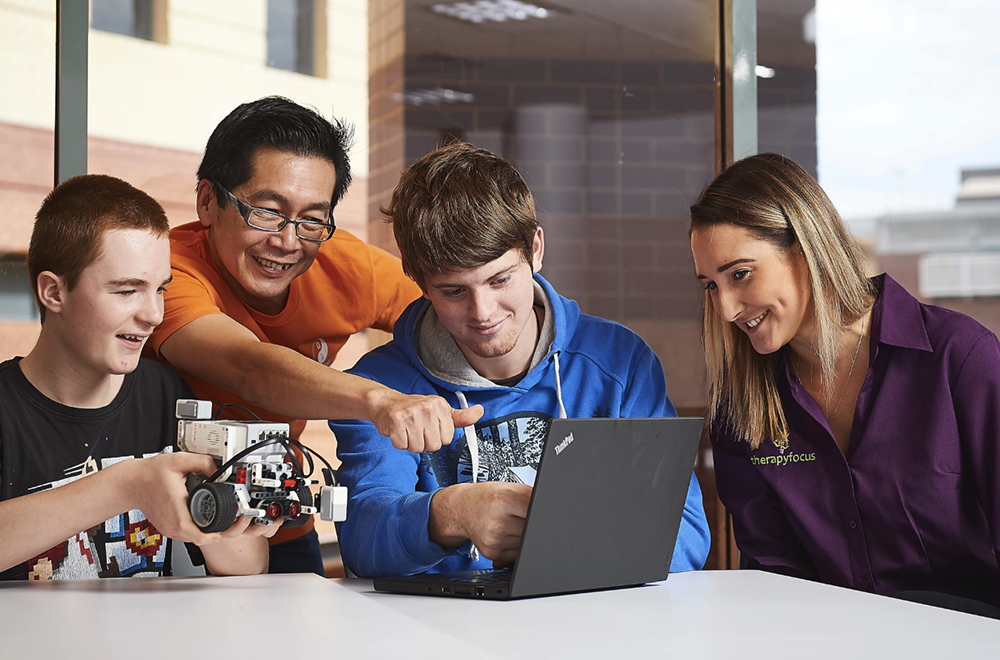The unique strengths of adolescents with autism, including attention to detail, loyalty and memory skills, should be the focus of employment programs to ensure they can play a crucial role in the workforce, according to a new report from Bankwest Curtin Economics Centre.
The Strength-Based Program for Adolescents with Autism report examined features that should be included in strength-based programs in order to deliver the most effective outcomes for young people living with autism. Program facilitators with shared interests were said to be crucial to the programs’ success supported by peer mentoring, key to building confidence and new skills.
The study observed and interviewed facilitators, parents and participants from three strength-based programs delivered by the Autism Academy for Software Quality Assurance (AASQA) CoderDojo at Curtin University, Autism West and Firetech Camp Australia.
AASQA director and report author, Professor Tele Tan, said many individuals with autism have abilities well suited to work in the information technology (IT) sector and developing programs that focused on these skills in a safe environment outside the classroom may assist in increasing employment rates of people with autism.
“Our research found program facilitators played a large role in the experiences of the people taking part in the program, so program coordinators should place a strong emphasis on recruiting facilitators with shared interests to participants, such as coding and playing video games. We also found programs should take a multi-disciplinary approach to sourcing facilitators, bringing together individuals from the science, technology, engineering and health discipline areas.”
Strength-based programs allow facilitators to tailor activities to individuals, and provide a higher level of autonomy for participants to complete activities. The programs studied also supported the existing strengths of adolescents with autism, while making allowances or alterations for specific health needs, Tan said. “These approaches can both celebrate diversity and help to build better futures for young people with autism.”
Report co-author and PhD candidate at the Curtin School of Occupational Therapy, Social Work and Speech Pathology, Matthew Jones, said the report also highlighted the benefits that come from peer mentoring, providing a space for participants to share their successes.
“Peer mentoring emerged as a way participants could teach each other new skills, resulting in mentors building their own confidence and socialisation skills, and mentees learning new techniques,” he said. “We also observed that participants had a high level of anxiety when starting a new program, and this could be managed by providing clear expectations for the program, providing autonomy, reducing noise levels and providing plenty of physical space. Accommodating the individual needs of adolescents with autism was essential for creating a safe space and reducing anxiety.”
After completing a program, participants were armed with the hard skills required for a career in IT, coupled with the soft skills they would need in order to work with a diverse team within a structured workplace, Jones said.
BCEC director, Professor Alan Duncan said the Centre was proud to support research into programs that aim to benefit the lives of people living with autism, in line with its mission to deliver research that improves the lives of West Australians and communities. “Employment is a fundamental right for everyone and programs such as these give adolescents with autism the confidence they need to develop skills to excel at school, through to entry into the workforce,” he said.
The latest data from the Australian Bureau of Statistics showed only 40.8 per cent of working age people with autism participated in the labour force, compared to 83.2 per cent of people without disability.
The full report can be viewed here: http://bcec.edu.au/assets/A-strength-based-program-for-adolescents-with-autism.pdf

